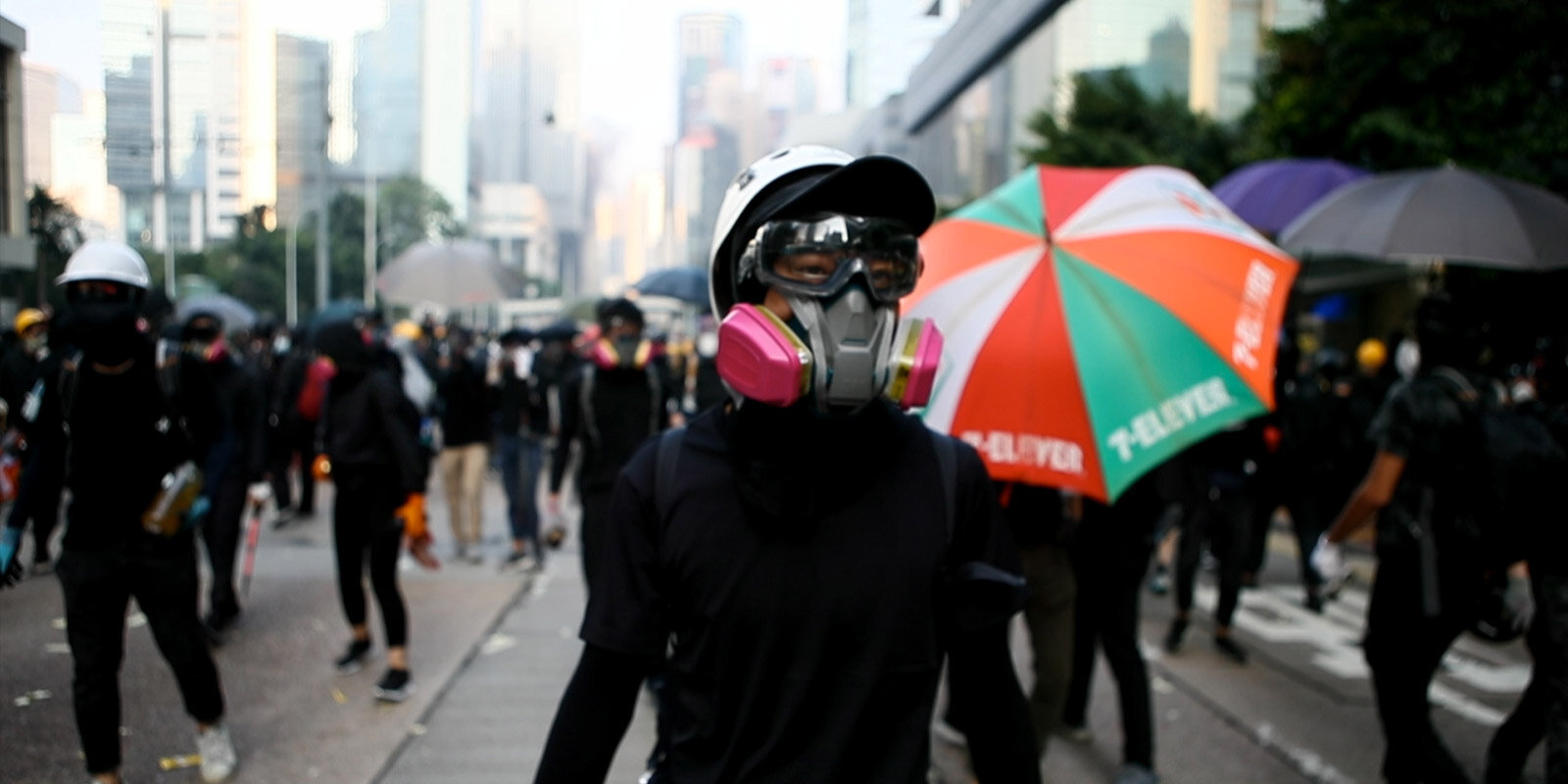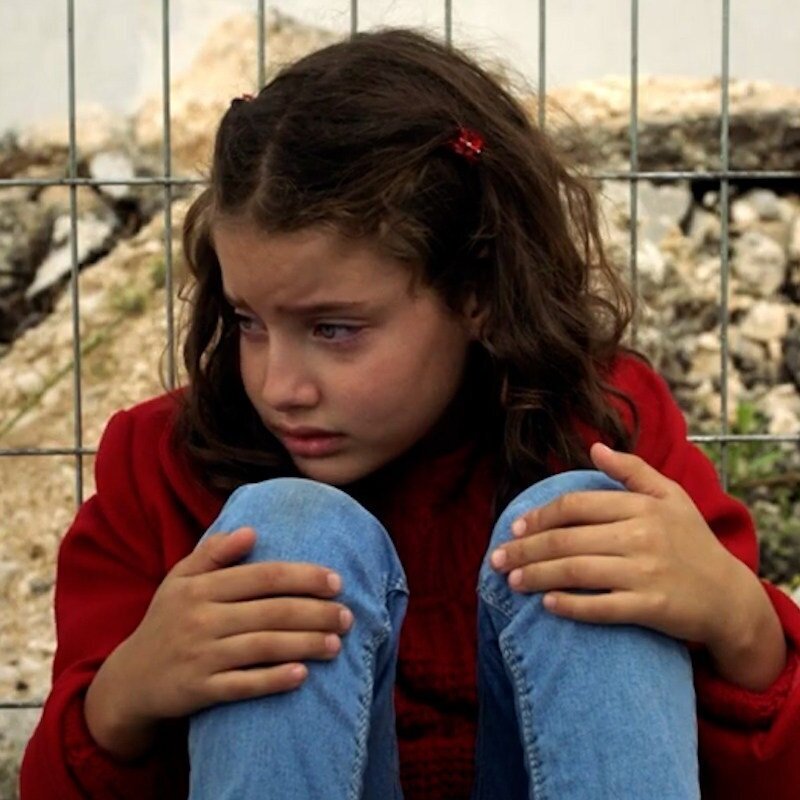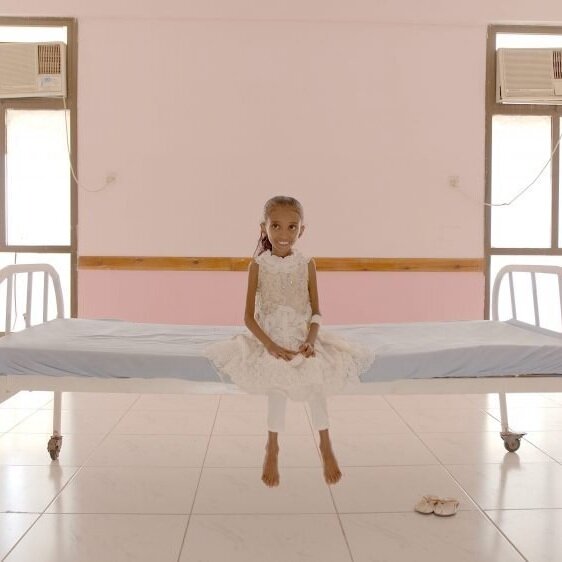Film reviews: 2021 Oscar Nominated Short Films program gives an urgent view into the outside world
Available via VIFF Connect, shorts travel from the streets of Hong Kong to the checkpoints of the West Bank
Do Not Split takes viewers to street level during a year of chaos and protest in Hong Kong.
The Present brings Israeli–Palestinian conflict to a human level.
Oscar Nominated Short Films in documentary, live action, and animated categories stream at VIFF Connect until April 29
THIS YEAR’S Oscar-Nominated Shorts program comes as a bracing reminder of life across the planet we’re so cut off from.
Over hours’ worth of documentary, fiction, and animated offerings, you can travel from the tensions on the West Bank to a hunger ward in Yemen to the gun violence wreaking havoc on our neighbours to the south. (Awards are handed out when this year’s Oscars take place on April 25.)
But no film feels as heart-poundingly urgent as Do Not Split, a documentary short that thrusts you into the street-level chaos of Hong Kong over the past year or more. Scenes from the early, pre-pandemic phase of the protests immerses the viewer in exploding teargas, flames, riot police, and chanting masses. Director Anders Hammer’s footage feels as dangerous as it is, following youths lighting Bank of China outlets on fire and spray-painting omnipresent security cameras; capturing young people being tackled and handcuffed; and outing red-flag-waving, pro-Communist Party flashmobs. Masked interview subjects, many still in their teens, talk about their love of freedom and nostalgia for the Hong Kong of their childhood.
But the most overwhelming feeling of dread comes when those crowds disappear, streets eerily emptied in 2020 thanks to a pandemic and the ever-escalating new laws banning gatherings. How powerful is this film? China has reportedly banned the broadcast of the Academy Awards over it. An essential reminder of what can happen in the shadows while the world is locked down.
A hard-won smile in Hunger Ward.
That also holds true for Skye Fitzgerald’s Hunger Ward, another alarming offering in the the strong documentary contingent, so painful it defies you to look away. The film follows a female doctor and nurse running Yemen’s malnutrition wards. The content is wrenching. One emaciated six-year-old weighs only 15 pounds when she arrives in her father’s arms. But the filmmaker takes pains to remind us of her humanity: at one moment the doctor manages to get her to offer up a weak smile; at another, the girl cheers up a smaller patient with a balloon. Fitzgerald brings a poetic eye to the subject, women veiled in black waiting in dusty white waiting rooms, or a blue-plastic bucket-scale, strung from the ceiling by rope, swaying hauntingly in the foyer.
There’s more: Colette breaks the mould of World War II history films, a portrait if an ill-tempered nonagenarian who makes a decidedly unsentimentalized journey to the place of her brother’s concentration-camp death. And the artful A Love Song for Latasha and A Concerto Is a Conversation experiment intriguingly with form in their tales, respectively, of a beloved girl shot at an L.A. convenience store, and a composer and his Jim-Crow-era grandfather.
On the live-action front, The Present takes a devastating allegorical look at the dehumanizing effects of ongoing Israeli-Palestinian conflict in the West Bank. Setting out to buy his wife a desperately needed new fridge, a loving father and his small daughter face a series of humiliating trials. Those begin with the long, crowded wait at a police checkpoint, leading to literal caging and other degrading obstacles. Understatedly heart-rending.
Another standout from Israel is Tomer Shushan’s Tel Aviv-set White Eye, shot in a single, deftly shot take. That approach vividly underscores the way circumstances can spiral and complicate quickly, in ways we don’t always expect. A young man calls the police when he spots his stolen bicycle locked up outside a shop in a graffiti-strewn back street. Notably, it now has a baby seat on the back. When he finds out belongs to an Eritrean migrant, and sees the way justice plays out for someone more marginalized than he is, he starts to question whether trying to reclaim his bike is worth it.
On the animation front, prepare for a wild assortment of visual riches, from the cute and cuddly (Disney/Pixar’s Burrow) to the sad and grief-stricken (Will McCormack and Michael Govier’s If Anything Happens I Love You, an expressive, black-and-white-sketched portrait of one couple’s life after losing a child to gun violence; the title’s meaning is crushing).
Eric Oh’s Opera reimagines society as a grand pyramid-shaped machine.
Among the most artfully inventive is Erick Oh’s Opera, which models the ills of society as a kind of grand-scale pyramid-shaped machine, where a cycle of Plinko-like balls pass through the hands of labourers, students, worshippers, and even sex workers, from have-nots to haves in a continuous, eight-minute cycle. Oh, to see it on a big screen.
And French filmmaker Adrien Merigeau’s Genius Loci renders ennui, or possibly mental breakdown, in visceral new ways, in abstracted, fluidly painterly style. Images from a woman’s domestic life—pots boiling over, water spilling, a baby crawling around—refract and and shapeshift. The stars she blows off a book’s page float before her face and then up into a sunset-lit, cluttered room; papers blowing on the street lift up into geometric shapes then morph, origami-like, into a pack of running dogs on the sidewalk.
It’s a different, interior chaos from the outward one in Do Not Split, but an equal warning sign, perhaps, that all is not right in the world.

















